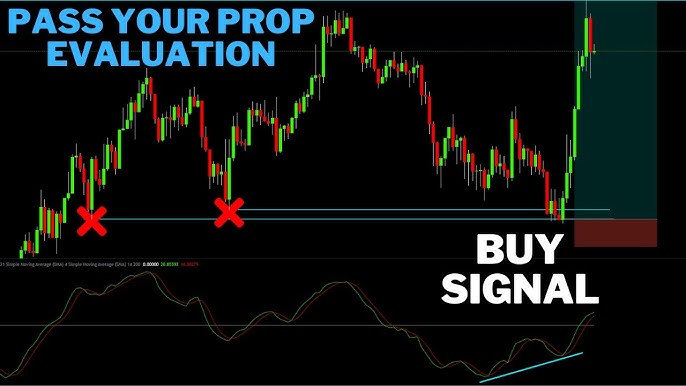Did you know that some prop firms evaluate traders like a reality show judge critiquing a cooking competition? Just as each dish is assessed for taste, presentation, and creativity, prop firms take a comprehensive approach to evaluate day trading performance. This article delves into how these firms measure success through various metrics, emphasizing the importance of profitability, consistency, and risk management. You'll discover the critical role of drawdowns, the significance of trading journals, and the benchmarks used to assess traders. Additionally, we explore how experience, strategies, and even psychological factors come into play. For aspiring traders, understanding these evaluation criteria can be the key to thriving in the competitive world of proprietary trading, and for more insights, DayTradingBusiness has got you covered!
How Do Prop Firms Measure Day Trading Success?
Prop firms evaluate day trading success based on consistent profitability, risk management, and trading discipline. They look for steady profit margins, low drawdowns, and adherence to trading plans. Performance metrics like win rate, average gain per trade, and risk-to-reward ratios are key. They also assess your ability to manage emotions and stick to rules under pressure. Ultimately, they want proof you'll generate sustainable profits over time.
What Metrics Do Prop Firms Use to Assess Traders?
Prop firms evaluate day traders using metrics like profit and loss (P&L), win rate, risk-to-reward ratio, average trade duration, drawdowns, consistency, and adherence to risk management rules. They also look at maximum consecutive wins or losses and overall trade quality. These metrics help determine a trader’s ability to generate steady profits while managing risk effectively.
How Important Are Profitability and Consistency for Prop Firms?
Profitability and consistency are crucial for prop firms because they indicate a trader’s ability to generate steady gains without excessive risk. Prop firms look for traders who consistently produce profits over time, showing discipline and risk management. High profitability alone isn’t enough if it’s inconsistent; steady results prove reliability. Consistent performance reduces the firm’s risk and boosts confidence in funding traders. Ultimately, both metrics signal a trader’s skill and stability, which are key for prop firm evaluation.
Do Prop Firms Look at Win Rate or Profit Margin?
Prop firms primarily focus on profit margin—how much you make relative to your risk—rather than win rate. They want to see consistent profitability and risk management skills more than just a high percentage of winning trades. A trader with a lower win rate but strong profit margin and controlled losses is more appealing than someone with a high win rate but small or negative profits.
What Role Does Drawdown Play in Evaluating Traders?
Drawdown measures the peak-to-trough decline in a trader's account, highlighting risk management. Prop firms use it to assess how much a trader risks during trades and whether they can control losses. A smaller, controlled drawdown shows disciplined trading and consistent performance, increasing chances of passing evaluation. Excessive drawdown signals poor risk control, risking account wipeout and failure to meet prop firm standards.
How Do Prop Firms Use Risk Management in Performance Evaluation?
Prop firms use risk management to assess day trading performance by analyzing how traders control losses, limit drawdowns, and size positions. They track metrics like maximum drawdown, win/loss ratios, and risk-to-reward ratios to ensure traders follow strict capital preservation rules. Consistent risk management indicates discipline, reducing the firm's exposure and increasing the likelihood of sustainable profits. If a trader manages risk well, their performance evaluation highlights stability and responsible trading habits.
Are Trading Journal and Track Record Important for Prop Firms?
Yes, trading journals and track records are crucial for prop firms. They show your consistency, discipline, and profitability over time. Prop firms review these to assess your trading habits, risk management, and ability to follow rules. A well-maintained journal demonstrates transparency and helps prove your skills during evaluation.
How Much Trading Experience Do Prop Firms Require?
Prop firms typically prefer traders with at least 6 months to 1 year of consistent trading experience. They look for a proven track record of profitability, risk management, and discipline, rather than a specific number of years. Some firms accept beginners with strong demo performance, but most favor traders who have demonstrated real trading skills over time.
Do Prop Firms Favor Certain Trading Strategies?

Yes, prop firms often favor trading strategies that demonstrate consistent profitability, risk management, and discipline. They look for traders who stick to proven methods like scalping, swing trading, or momentum trading, as long as these strategies produce steady gains without excessive risk. Strategies that show a clear edge, controlled drawdowns, and adherence to firm rules tend to be preferred.
How Do Prop Firms Verify a Trader’s Performance?
Prop firms verify a trader’s performance by reviewing trading accounts over a set period, checking for consistent profitability, risk management, and adherence to trading rules. They analyze metrics like profit and loss, drawdowns, win rate, and trade frequency. They often require traders to pass evaluation phases or demo accounts before confirming real trading results. The firm may also scrutinize trade logs, account statements, and trading style to ensure performance is genuine and sustainable.
What Are Common Performance Benchmarks for Day Traders?
Prop firms typically look at daily profit targets, consistency in returns, risk management, and drawdowns. They evaluate a trader’s ability to hit specific profit thresholds within set timeframes, usually daily or weekly. Stable risk control—limiting losses to a small percentage of trading capital—is crucial. Consistent performance over multiple trading sessions demonstrates reliability. They also assess how well traders stick to their trading plans and manage emotional reactions. Overall, benchmarks include hitting profit goals, minimizing drawdowns, and maintaining steady, disciplined execution.
Do Prop Firms Consider Market Conditions When Evaluating Traders?
Yes, prop firms consider market conditions when evaluating traders. They look at how traders perform across different market environments—volatile, trending, or sideways—to ensure consistency. Traders who adapt well and maintain profitability during various conditions are viewed more favorably.
How Do Prop Firms Handle Losses During Evaluation?
Prop firms typically pause the evaluation if you hit a loss limit, requiring you to recover before continuing. They often set a maximum drawdown, and once exceeded, you might need to restart the process or meet specific recovery rules. Losses during evaluation are treated as part of your overall performance; if you breach the rules, your evaluation ends. Some firms allow limited losses before termination, emphasizing consistent risk management. They monitor your ability to control losses and recover quickly, focusing on sustainable trading habits.
Learn about How Do Prop Firms Handle Losses in Day Trading?
What Is the Typical Evaluation Period for Prop Firms?

Prop firms typically evaluate day trading performance over 30 to 90 days. They review consistency, risk management, and profitability during this period. Some firms may extend the evaluation to 120 days if needed.
How Do Prop Firms Assess Trader Discipline and Consistency?
Prop firms assess trader discipline through their adherence to trading plans, risk management rules, and emotional control. They monitor consistency by analyzing trade logs for steady profit patterns, avoiding large losses, and maintaining disciplined trading hours. They look for traders who stick to predefined strategies without impulsive decisions. Performance reviews often include tracking win/loss ratios, drawdowns, and how well traders follow risk parameters. If a trader shows disciplined execution and consistent results over time, they pass the evaluation.
Are Trader Psychological Factors Considered in Performance Evaluation?
Yes, prop firms consider trader psychological factors in performance evaluation. They assess mental resilience, discipline, emotional control, and consistency because these traits impact trading results and risk management. A trader who stays calm during volatility and sticks to their plan often scores higher than one driven by impulsive decisions.
Conclusion about How Do Prop Firms Evaluate Day Trading Performance?
In summary, prop firms utilize a comprehensive approach to evaluate day trading performance, focusing on metrics such as profitability, consistency, risk management, and drawdown. They assess traders' track records and trading journals while considering market conditions and psychological factors. Understanding these evaluation criteria is crucial for aspiring traders aiming to succeed in prop trading. For those looking to improve their trading strategies and insights, DayTradingBusiness offers valuable resources to navigate this competitive landscape effectively.
Learn about How Do Prop Firms Affect Day Trading Strategies?